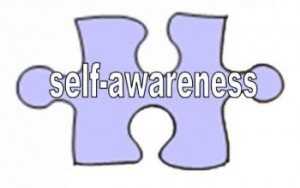Let’s talk about vaccines for a minute. It’s not my favourite topic because I feel it’s the one topic that breaks apart the Autism community when we really should be standing up together and supporting each other.
First and foremost let me say, no, I do not believe that vaccines cause Autism. That does not mean that I do not think that there could be situations where a vaccination could trigger an already pre-existing condition (like Autism for example) which would cause a regression.
Do I think vaccines are perfectly safe? No, of course not. Not even their inventors and marketers think they’re perfectly safe. Everyone knows there is a certain % of people that have adverse reactions, allergic reactions, side effects and sometimes, even cause death.
Do I think that the recent Wakefield news means anything in regards to the vaccine risks? No. They simply proved that he lied, fabricated his evidence and findings. It doesn’t prove anything about what vaccines do or do not do though, just that his findings didn’t prove anything one way or another.
I have said since day one that if you have concerns, ask your doctor a million questions and demand a schedule that you feel more comfortable with but please please please do not deny vaccinations entirely.
Here’s the thing, this is where I think that things have gone wrong:
- People forget what these illnesses can do and what they’re like.
Most of them don’t sound so bad, most of them many people had as children themselves and again, weren’t so bad. But you’re remembering and thinking of a very small piece of an entirely much larger picture. These simply “cough and get over it” illnesses do kill people! Some disfigure, some kill.. some simply clog the medical community with thousands upon hundreds of thousands of hospital visits.
- People think that an all but gone illness can’t come back.
If it’s not gone, it can come back. In fact, that’s the very nature of these illnesses in the first place… to spread! It’s particularly ironic in a country like the US where most people complain about the immigration rates that they’d possibly think that an illness that still inhabits other countries could never actually find their way back in.
- People forget that there are babies, elderly and other lower immunity tolerance people out there.
Yes, measles as a kid is rough, but in a senior citizen? Deadly. Whooping cough means a hospital visit for most people, it means almost certain death for a baby. When you or I talk about the illnesses these vaccines prevent, we picture ourselves and our children but in reality, much like the flu, it can kill people that are less equipped to fight it off.
Listen, without vaccines, I believe that by now, we’d probably be seeing a word wide population decrease at this point, rather than our continuing increase. If nothing else, we’d certainly have far less medical resources to be keeping us healthy. I mean, think about it… how bad is health care where you are?? How bad would it be if a few million people every year were in there with all these diseases that are preventable?
Do I promote getting vaccines? Yes.
Do I also promote safe vaccine schedules? Yes.
Do I promote more research into all of the dangers of vaccines? Yes.
Do I promote more research into finding better and safer ingredients to be used in vaccines? Yes!
The way I see it, if they can pump out a newer and better cell phone every 3 months, they can have new and better vaccines as well.
Don’t ever make the mistake of thinking that I am happy with the way things are… or that I think a certain % of vaccine injuries or deaths is just acceptable. The numbers can always be improved!
But don’t ever think that I am supposed to be out there inciting fear, panic and further division within the Autism community. That simply is not my goal. I understand if it’s not yours either but let’s be honest, many who do hate vaccines, and vaccine makers, do push the boundaries too far. They want others to share in their hatred. They want others to take up a pitchfork and fight along side them.
I am not that person.
Ask for a safer schedule, petition to have more research and safer vaccines created. But never think that not preventing many illnesses is a good way to maybe lower the risk of Autism.
Stop listening to Wakefield, stop listening to anti-vaccination people, stop listening to conspiracy theorists, stop listening to pharmaceutical companies, stop listening to marketers, stop listening to pro-vaccination people… stop listening to me!
Use some common sense, use some rational thinking… do your research, do your reading. Look at the numbers, look at the history. Ask yourself, if it’s all a risk, if it’s all about choosing from bad and bad, why would you opt for denying what you know will be prevented?
Option A prevents X, Y, Z and may cause Q
Option B prevents nothing, so you may get X, Y, Z and still may cause Q anyway
Which makes more sense??
My wife suggested that I make my blog’s tagline “using common sense”… because I pride myself in doing just that. That’s all that I see in this matter, is to use common sense.
Fight for safer vaccines. Fight for a safer schedule. Fight for more safety with our children!!
But never forget that safer actually means taking the vaccines. It does save lives.
This is my official stance on vaccines. I know it’s a hot topic, I know not everyone will agree. Please do not get mad if you don’t. Everyone is entitled to their opinions and as such, I would never think poorly of you for yours. We need to support each other in pushing for the discovery of the true cause, a way to help those that have Autism and for more resources in schools, work, housing and more. Let’s work together.
 Children that are newly diagnosed likely need the extra hand holding… a child that is so severely low functioning that they’re unable to speak or be toilet trained, they should probably not be in a public school. No, I don’t think the parent has to choose between an institution and home schooling either. A school should be an option… an OPTION. They should not be forced into school and they should not be forced to send their defenceless child to what will likely be a very difficult and cruel time at public school.
Children that are newly diagnosed likely need the extra hand holding… a child that is so severely low functioning that they’re unable to speak or be toilet trained, they should probably not be in a public school. No, I don’t think the parent has to choose between an institution and home schooling either. A school should be an option… an OPTION. They should not be forced into school and they should not be forced to send their defenceless child to what will likely be a very difficult and cruel time at public school.











